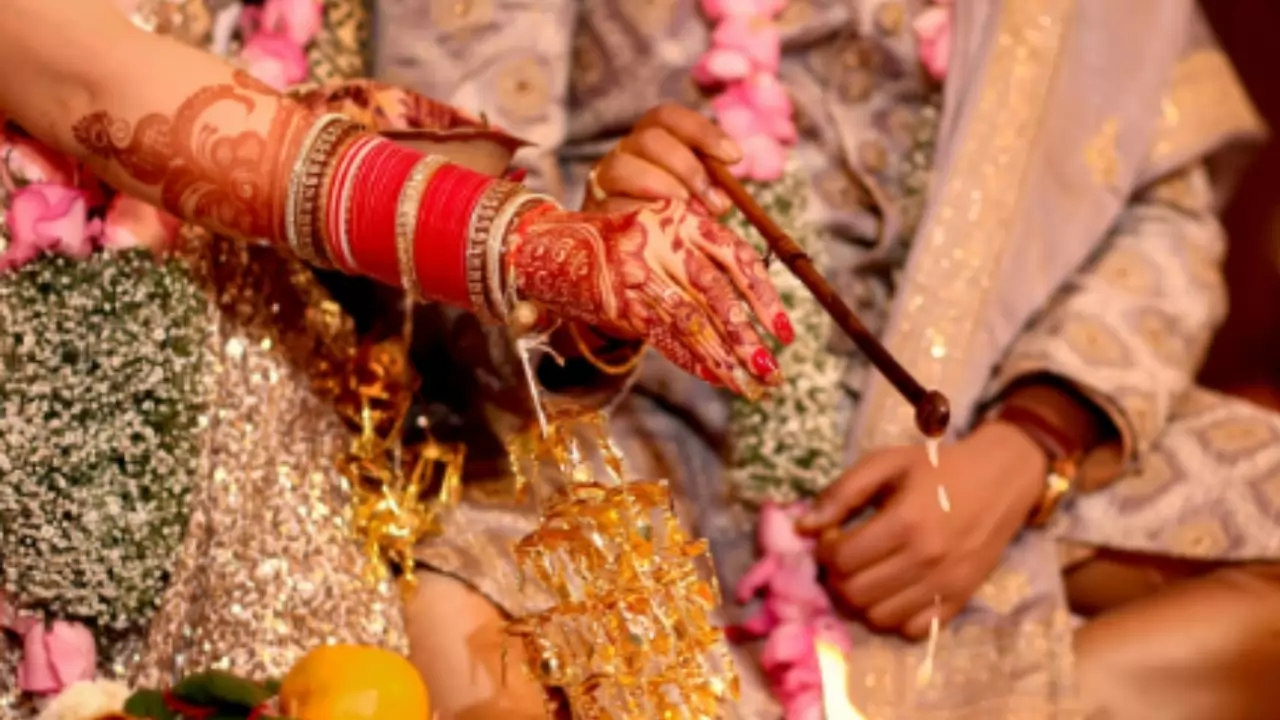
pexels
Kanyadaan which is a transfer of the gotra from her paternal side to the groom's family in the presence of Agni Dev, is no longer compulsory, according to the ruling of Allahabad High Court. The ‘Saptapadi’ is a sacred and meaningful ritual that signifies the couple's commitment to each other and to their shared journey in married life.
A bench of Lucknow high court while hearing a revision petition filed by said that only 'saptapadi' (Sanskrit for 'saat phere') is an essential ceremony of a marriage as per Hindu Marriage Act.
The response from Justice Subhash Vidyarthi of High Court came after a petition filed by a person and was junked in the revision plea saying the act provide 'Saptapadi' an essential ceremony.
The petition filed by a person, in opposing a criminal charge brought by his in-laws, had contested an order made by the Lucknow extra sessions judge on March 6. He had argued before the trial court that his marriage, as required by the Act, required a 'kanyadaan' ceremony, which was not carried out in his case.
Saptapadi is a significant ritual in Hindu weddings, especially in South Indian and Hindu Gujarati weddings. It is also known as the ‘Seven Steps’ or the ‘Seven Vows.’ During this ritual, the bride and groom take seven steps together, each step symbolizing a vow or promise they make to each other as they embark on their journey of married life.
Traditionally, the seven vows taken during the Saptapadi are as follows:
First step (Pratham Adhara): The couple prays to God for plenty of nourishing and pure food and a life that is noble and respectful.
Second step (Dwitiya Adhara): They pray for physical, mental, and spiritual strength to lead a healthy and harmonious life.
Third step (Tritiya Adhara): The couple seeks wealth and prosperity, promising to share their wealth equally and responsibly.
Fourth step (Chaturtha Adhara): They promise to acquire knowledge, happiness, and harmony through mutual understanding, love, and respect.
Fifth step (Panchama Adhara): The couple prays for the welfare of their progeny, promising to be responsible parents and provide them with a nurturing environment.
Sixth step (Shastha Adhara): They promise to remain true and loyal to each other, supporting and encouraging one another in all aspects of life.
Seventh step (Saptama Adhara): The couple promises to remain lifelong friends and companions, supporting each other through joy and sorrow, sickness and health, until death separates them.
After taking these seven steps, the marriage is considered complete, and the couple is officially declared as husband and wife.





Copyright © 2026 Top Indian News
